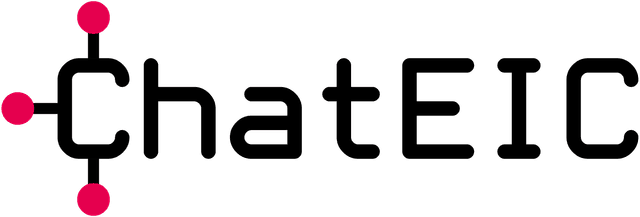
EIC Accelerator 2026 - New Deadlines and Strategic Planning
The recently leaked draft of the EIC work program 2026 reveals a significant change: 6 deadlines for the EIC Accelerator Step 2 and 12 deadlines for Step 1 in the upcoming year.
This change offers more opportunities for applicants, particularly those who tend to apply at the last minute. However, it also means a busy end of the year, as the first Step 2 deadline in 2026 is scheduled for January 7th.
Understanding the EIC Accelerator Deadlines
This new schedule requires early preparation for a Step 2 application. To break down the timeline, let's look at the remaining EIC Accelerator Step 1 deadlines for 2025:
- September 2
- October 7
- November 4
- December 2
Given the approximately six-week waiting period for a response, applicants who submit on these dates would receive their Step 1 results around the following dates:
- October 14
- November 25
- December 16
- January 13
Strategic Submission for Step 1
Considering these dates, you'll need to submit your Step 1 proposal at one of the next three deadlines (September, October or November) to be ready for the January 7th Step 2 deadline.
A key consideration is also whether you'll need to resubmit your proposal, which would require an extra submission window. If you do not receive the go on the first try (i.e., below 75% approval), then you must quickly improve the proposal and resubmit it to a following deadline which can lead to time constraints.
It could also be a waste of time to begin preparing a Step 2 proposal before receiving a Step 1 approval since the work might have been for nothing.
Therefore, the ideal date to submit your Step 1 proposal is October 7th and to begin the preparation now. This strategy provides a fallback option: if your proposal is rejected, you still have time to resubmit it for the November 4th deadline. If you are approved on the first try, you'll have ample time to prepare your Step 2 proposal without the pressure of starting Step 2 before you know the outcome of your Step 1 application.
Adjusting to New Requirements
It's important to note that the Step 2 proposal process is expected to change next year. Although the new template is supposed to be shorter, the EIC has a history of adding requirements rather than removing them. As a result, the workload for a 2026 Step 2 proposal may be similar to or even greater than the workload in 2025. Be prepared to allocate sufficient time for preparation, as you may need to adjust to the new format.
You can find all deadlines here and here. Please monitor them since they might be updated as the work program will be published later this year.
Note: If Step 1 evaluations are completed in only 5 weeks then it could be possible that a December submission result for Step 1 could be obtained before January 7th but it is unlikely considering the holiday season.
Need help with the EIC Accelerator? Here are some options:
- Starter Pack (lowest-risk entry with AI writer): The Starter Pack contains all the templates you will need and detailed instructional modules in video and text form. This is a very comprehensive package that will tell you everything you need to know based on previously successful applications. This includes free credits for the EIC Accelerator AI writer, ChatEIC.
- Advisory (personalized support): You write in-house but receive personal 1-on-1 support from me, templates, instructions, and reviews of all documents. Personal strategy calls and reviews to perfect every section. This also includes an AI tool for Step 1 as well as guidance on using AI for the proposal writing. Strategy calls cover the specific templates as well as the EIC criteria and use of AI tools. Pitch coaching for the interviews and support for all resubmissions are included as well. Learn more (Rasph).
- Writing (complete end-to-end service): All proposal sections are written for you and submitted on your behalf with minimum input from your side. Pitch coaching for the interviews and support for all resubmissions are included as well. Learn more (Segler Consulting).
Other resources:
- Subsdy: Looking for the perfect grant opportunity in the EU? There are about 1,000 active grants and tenders (usually multiple added a day!), so feel free to try out Subsdy, the AI tool for grant discovery.
- Find the newest Grant Updates here: Subsdy News
- Sharing: Recommend this newsletter to a friend: Newsletter
These tips are not only useful for European startups, professional writers, consultants and Small and Medium-Sized Enterprises (SME) but are generally recommended when writing a business plan or investor documents.
Deadlines: Post-Horizon 2020, the EIC Accelerator accepts Step 1 submissions now while the deadlines for the full applications (Step 2) under Horizon Europe are listed below. The Step 1 applications must be submitted weeks in advance of Step 2. The next EIC Accelerator cut-off for Step 2 (full proposal) can be found here. After Brexit, UK companies can still apply to the EIC Accelerator under Horizon Europe albeit with non-dilutive grant applications only - thereby excluding equity-financing. Switzerland has resumed its participation in Horizon Europe and is now eligible for the EIC Accelerator.
EIC Accelerator Step 1 Deadline 2025
Contact: You can reach out to us via this contact form to work with a professional consultant.
AI Grant Writer: ChatEIC is a fully automated EIC Accelerator grant proposal writer: Get it here.
EIC Accelerator: EIC Accelerator delivers flexible funding options including blended finance (€2.5M grant + €0.5M-€10M equity), grant-only (up to €2.5M), or equity-only arrangements for scale-up and market deployment of breakthrough innovations. The initiative targets SMEs, start-ups, and small mid-caps with up to 499 employees. Technology areas include Biotech, Engineering, Artificial Intelligence, Energy, Quantum, Aerospace, Advanced Materials, and Semiconductors. Get Started
EIC Pathfinder: EIC Pathfinder delivers up to €3 million for Open calls and up to €4 million for Challenge-based calls to support early-stage research and development with proof-of-principle validation. The initiative requires research consortia with a minimum of 3 partners from 3 different countries, including universities, research organizations, and SMEs. Primary technology focus areas include Health/Medical, Quantum Technologies, AI, Environmental/Energy, and Advanced Materials. Get Started
EIC Transition: EIC Transition delivers up to €2.5 million in funding to overcome the 'valley of death' gap between laboratory research and market deployment, emphasizing technology maturation and validation. The initiative supports single legal entities or small consortia of 2-5 partners including SMEs, start-ups, spin-offs, and research organizations. Key technology domains include Health/Medical Technologies, Green/Environmental Innovation, Digital/Microelectronics, Quantum Technologies, and AI/Robotics. Get Started
EIC STEP Scale-Up: EIC STEP Scale-Up delivers significant equity investments of €10-30 million for established deep-tech companies prepared for hyper-growth and large-scale expansion. The initiative targets SMEs or small mid-caps with up to 499 employees who have obtained pre-commitment from qualified investors. Primary focus areas include Digital & Deep Tech (Semiconductors, AI, Quantum), Clean Technologies for Net-Zero objectives, and Biotechnologies. Get Started
EIC Pre-Accelerator: EIC Pre-Accelerator represents a pilot initiative delivering €300,000-€500,000 in funding for early-stage deep-tech development and preparation for the EIC Accelerator program. This program is exclusively accessible to single SMEs or small mid-caps from 'Widening countries' to foster regional innovation development. The initiative encompasses deep-tech innovations across physical, biological, and digital domains. Get Started
EIC Advanced Innovation Challenges: EIC Advanced Innovation Challenges represents a new pilot initiative delivering €300,000 (Stage 1) and up to €2.5 million (Stage 2) for breakthrough deep-tech innovations through ARPA-style staged funding mechanisms with integrated demand-side engagement. This initiative targets single entities or small consortia (2-3 partners) including SMEs, start-ups, and research organizations. Primary focus areas include Physical AI for autonomous robotics applications and New Approach Methodologies (NAMs) for animal-free biomedical testing, with TRL 4 entry requirements and demonstrated end-user commitment. Get Started
Eureka Network: The Eureka Network delivers various international collaborative R&D initiatives such as Network Projects, Clusters, Eurostars, Globalstars, and Innowwide, providing funding from €50K to €6.75M per project based on the specific initiative. This network emphasizes market-driven innovation and deep-tech advancement across multiple technology sectors including ICT/Digital, Industrial/Manufacturing, Bio/Medical Technologies, Energy/Environment, Quantum, AI, and Circular Economy. Eligible participants include SMEs, large enterprises, research organizations, universities, and startups, with Eurostars particularly focused on R&D-performing SMEs. Get Started
Eurostars: Eurostars represents a joint EU-Eureka initiative delivering €50K-€500K for international R&D collaboration specifically led by SMEs. The program adopts a bottom-up approach, accepting projects from all technology fields without predefined thematic restrictions. R&D-performing SMEs must lead the consortium and demonstrate significant R&D activities. Get Started
Innovation Partnership: Innovation Partnership enables collaborative innovation between public and private sectors with typical funding of €1-5 million per project. The initiative supports cross-sectoral strategic technologies through public-private partnerships and consortia. Projects concentrate on addressing societal challenges through collaborative innovation approaches. Get Started
Innovation Fund: The EU Innovation Fund delivers substantial funding of €7.5 million to €300 million for large-scale demonstration of innovative low-carbon technologies. The initiative targets clean energy, carbon capture, renewable energy, and energy storage technologies to accelerate the transition to a low-carbon economy. Eligible participants include large companies, consortia, and public entities capable of implementing large-scale demonstration projects. Get Started
Innovate UK: Innovate UK delivers various programs with funding ranging from £25K to £10M depending on the specific initiative, supporting business-led innovation, collaborative R&D, and knowledge transfer. The organization funds projects across all sectors with particular emphasis on emerging technologies and supports UK-based businesses, research organizations, and universities. Programs are designed to drive economic growth through innovation and technology commercialization. Get Started
Industrial Partnership: Industrial Partnership delivers €2-10 million in funding for industrial research and innovation partnerships focusing on manufacturing, industrial technologies, and digital transformation. The initiative supports industrial consortia and research organizations in developing collaborative solutions for industrial challenges. Projects aim to strengthen European industrial competitiveness through strategic partnerships. Get Started
LIFE Programme: The LIFE Programme delivers €1-10 million in funding for environmental protection, climate action, and nature conservation projects across the European Union. The initiative supports environmental technologies, climate adaptation strategies, and biodiversity conservation initiatives. Eligible participants include public authorities, private companies, NGOs, and research institutions working on environmental and climate challenges. Get Started
Neotec: Neotec represents a Spanish initiative delivering €250K-€1M in funding for technology-based business creation and development, supporting the growth of innovative Spanish SMEs and start-ups. The program covers all technology sectors and aims to strengthen Spain's technology ecosystem. Funding is specifically targeted at Spanish technology-based SMEs and start-ups to enhance their competitiveness and market presence. Get Started
Thematic Priorities: EU Thematic Priorities encompass various programs aligned with EU strategic priorities including green transition, digital transformation, health, and security initiatives. Funding amounts vary based on the specific program and call requirements, with projects designed to address key European challenges. Applicant eligibility varies by specific program and call, with different requirements for different thematic areas. Get Started
Any more questions? View the Frequently Asked Questions (FAQ) section.
Want to see all articles? They can be found here.
For Updates: Join this Newsletter!
